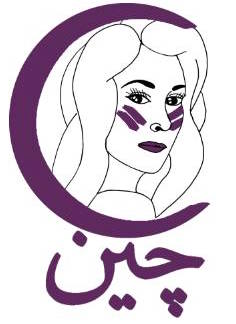In the last two decades one can see a drastic change in Pakistan family values and systems. There has been an increase in divorce rates as well as in domestic violence in Pakistan. It has been noted (year 2011) that in Lahore city alone 100 cases are registered in family court every day. Similarly, in Islamabad the divorce couple cases reached to 557 in 2011 compared to 208 in 2008. As a female, I have been told many times what to do, what not to do, that my in-laws will not tolerate this and that I will return home very soon after marriage if “this stubbornness” continues. The emphasis is that in a male chauvinistic society and culture like ours, divorce is still considered very taboo. The girls do not want the label of divorce and stay in a relationship where they get beaten up for dowry, abused mentally, physically, psychologically by their spouse, and/or his family. In many cases, the woman’s life becomes a matter for the whole family and neighbours to interfere in with zero control of the woman herself. A married woman’s life becomes public property – to be executed, changed, challenged and harassed at the will of others.
As a nation we are quite judgmental by nature; we judge the caste, color, race, beliefs and much more of people in general whether we know them or not. I have noticed that whenever people hear about someone’s daughter/son getting divorced, they direct all forces on the girl because surely it must have happened because of her. All of a sudden, everyone becomes a highly qualified PhD certified expert in ‘the Islamic way of living’ and the sanctity of married life. I have come across my relatives and families in Pakistan where they have demeaned a girl’s reputation for getting divorced. Not only the in-laws but also the parents of the girl lay the entire blame of the divorce on her. It is surprisingly easy for these pious muslims to forget the golden words of the Holy book: “The parties should hold together on equitable terms or separate with kindness” Surah Al Baqrah. So far, I have seen and met only one couple who after getting separated still meet with respect and kindness.
The most important information we don’t discuss or pay attention to is our “Nikah Nama”. Nikah Nama is basically a form of marriage certificate. The irony of life is that Pakistani women spend a lot of money on their weddings to look good, for instance on clothes, wedding halls, photographers etc. Unfortunately, they don’t spend time on reading an important document before getting married. In fact, some families go to extreme lengths to not tell their women know about the ‘right to divorce’ clause. Some families even delete the ‘right to divorce’ clause so women are not even aware of the choice. During my university days I had to do the research on wedding costs. I realized how truly expensive it can be to “tie the knot”. In Pakistan, an average middle class family pays Rs. 600,000 (£3,500) roughly for just one event (Mehndi, Baraat, Valima). Do the math yourself by checking out the rates of Marriot Hotel, Creek Club, SEMS, Larosh, The Palm and World caterers.
The Morning TV shows have exploited sit-at-home ladies who become influenced by the grandeur of celebrity wedding stages, clothes and praxis which may not be a cultural norm. These TV shows are so useless; they will show a series of 4 – 6 extravagant events from Mayoon to “Chowthi” (day after valima). This new trend has been given a boost by wedding and event planners. Then of course, there is the photographer’s cost which starts from Rs. 150,000. It’s ridiculous how much event planners charge including services which could be done by the couple themselves, such as the printing of cards. The perception is that the more you spend the better result you will get; therefore, the spending on weddings never ends till the last minute.
The importance of the Nikah nama is that women can stipulate their rights regarding the second marriage of their husband in the marriage certificate form. I have come across many married women who didn’t know about their “Haq Mahar”. Haq Mahar is the amount decided by both parties which has to be paid to the bride by the groom. This comes in two types: prompt (Mahar Moajjal) or deferred (Mahar Non Moajjal). Furthermore, there is an option where a woman can exercise her right to divorce her husband when things go out of hand and it’s intolerable to stay together. It’s high time we should start looking into the matters of our basic rights.
The Nikah Nama document (the complete one, not the oh-we-have-deleted-the-rights-of-women-clauses) is very simple and plainly written in Urdu. English translated versions can also be found as well. Abusive households are not only toxic for the couple but can also have far-reaching repercussions for any children in the house.
Are you or someone you know getting married soon and want to find out more about your legal rights? The complete “Nikah nama”, Chayn’s Legal section, this Tribune article and “The Muslim Family Laws 1961, Ordinance No. VIII” are a good place to start.
References:
http://www.ma-law.org.pk/pdflaw/THE%20MUSLIM%20FAMILY%20LAWS%20ORDINANCE.doc.
http://www.embassyofpakistanusa.org/forms/Transnakha-Fill.pdf
http://tribune.com.pk/story/491509/pakistani-women-turn-to-once-taboo-divorce-to-escape-abuse/
To comply with the order of a man with dignity can use tracking tools, it will help him to identify fraud. catch a cheating spouse has always been a matter of strong vanym husband.



